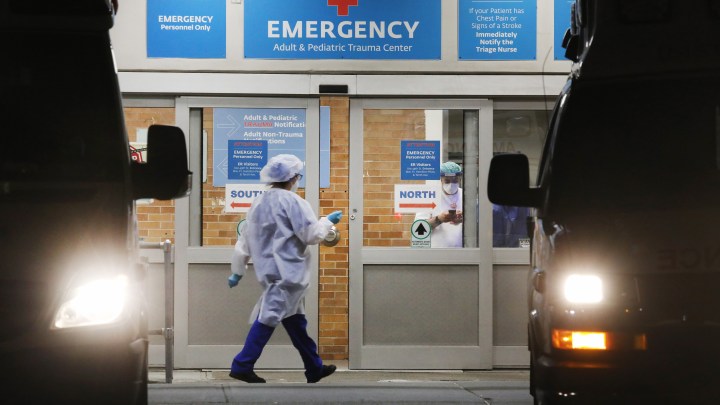
States scrambling with Medicaid enrollments climbing
States scrambling with Medicaid enrollments climbing

As this pandemic stretches on and on, one health care plan that’s been gaining enrollees all year is Medicaid.
The federal and state program helps with medical costs for children, disabled people and those with low-incomes. This year’s increase in Medicaid enrollments may mean financial trouble for states. Some may need to start looking for ways to cut Medicaid costs without cutting the Medicaid program.
As millions of people have lost their jobs in this pandemic, many have also lost their health insurance.
“Medicaid has really been a first responder in the COVID-19 pandemic, both from a health perspective and an economic perspective,” said Joan Alker, executive director of the Center for Children and Families at Georgetown University.
As of July, some 4 million more people enrolled in Medicaid than were on the rolls in February, and that number keep growing. With all those new enrollees comes added expense.
For most states, Medicaid makes up around one-third of the state budget.
With less income tax coming in, less sales revenue and a slew of unexpected pandemic expenses, states are strapped.
“Governors are working on putting together budgets for the upcoming 2022 fiscal year, which begins July 1. And they will have to assume that fiscal relief is not available,” said Robin Rudowitz with the Kaiser Family Foundation.
The federal government typically matches state expenditures 50/50. But for people who got Medicaid through the Affordable Care Act expansion, the government covers 90%. States also got extra federal money for Medicaid through the CARES Act in the spring.
Sara Rosenbaum, a health law and policy professor at George Washington University, said states are looking for any place they can trim.
“Probably the No. 1 thing states are strategizing around is cutting provider payments or deferring provider payments in order to free up money,” she said. Or eliminating health benefits, like dental or vision.
James Nash of the National Governors Association said if states can’t make more trims in Medicaid, other vital services could be cut.
“We’re talking about K-12 and higher education. We’re talking about corrections and public safety,” he said.
So states are doing some hard math.
There’s a lot happening in the world. Through it all, Marketplace is here for you.
You rely on Marketplace to break down the world’s events and tell you how it affects you in a fact-based, approachable way. We rely on your financial support to keep making that possible.
Your donation today powers the independent journalism that you rely on. For just $5/month, you can help sustain Marketplace so we can keep reporting on the things that matter to you.












